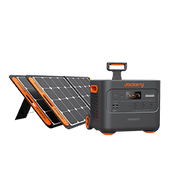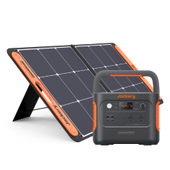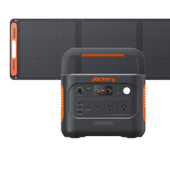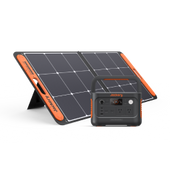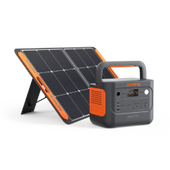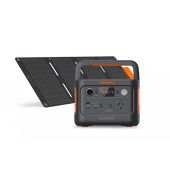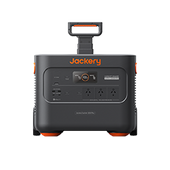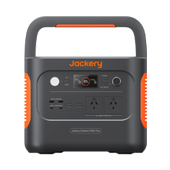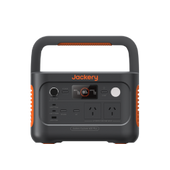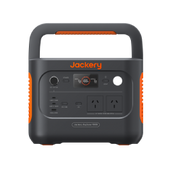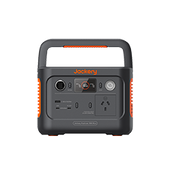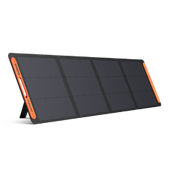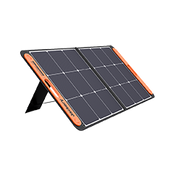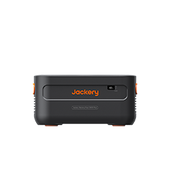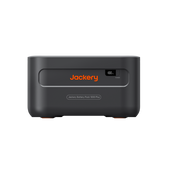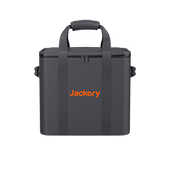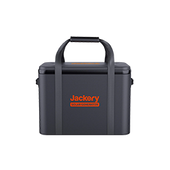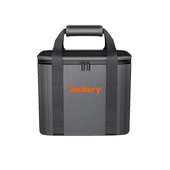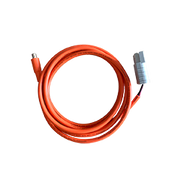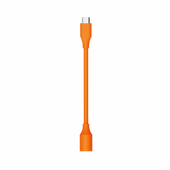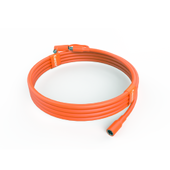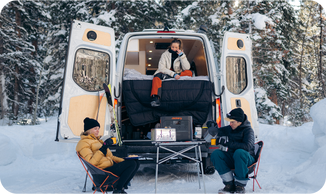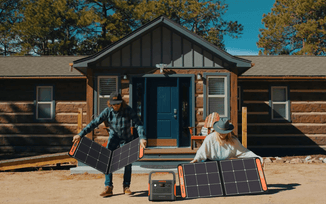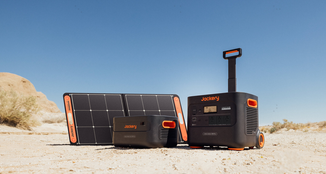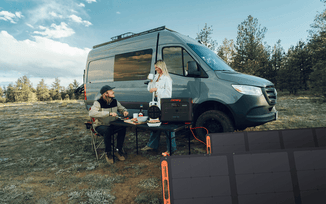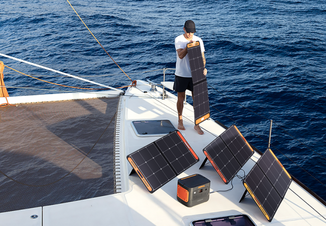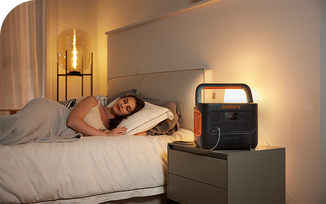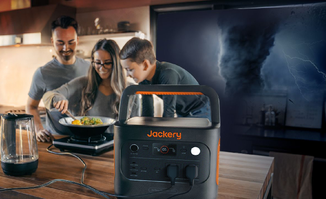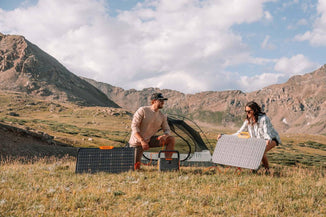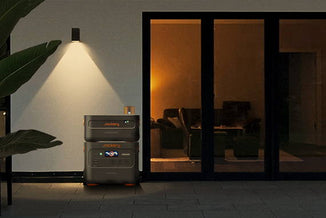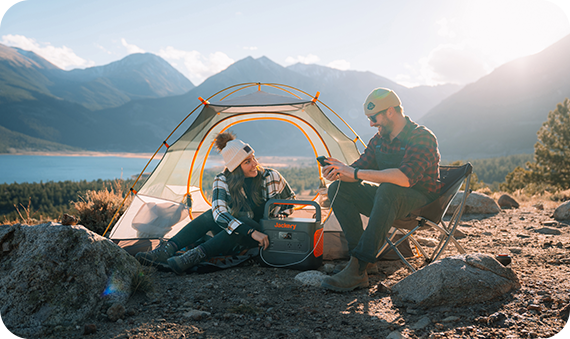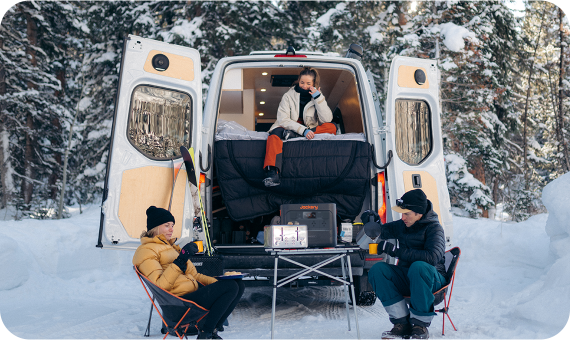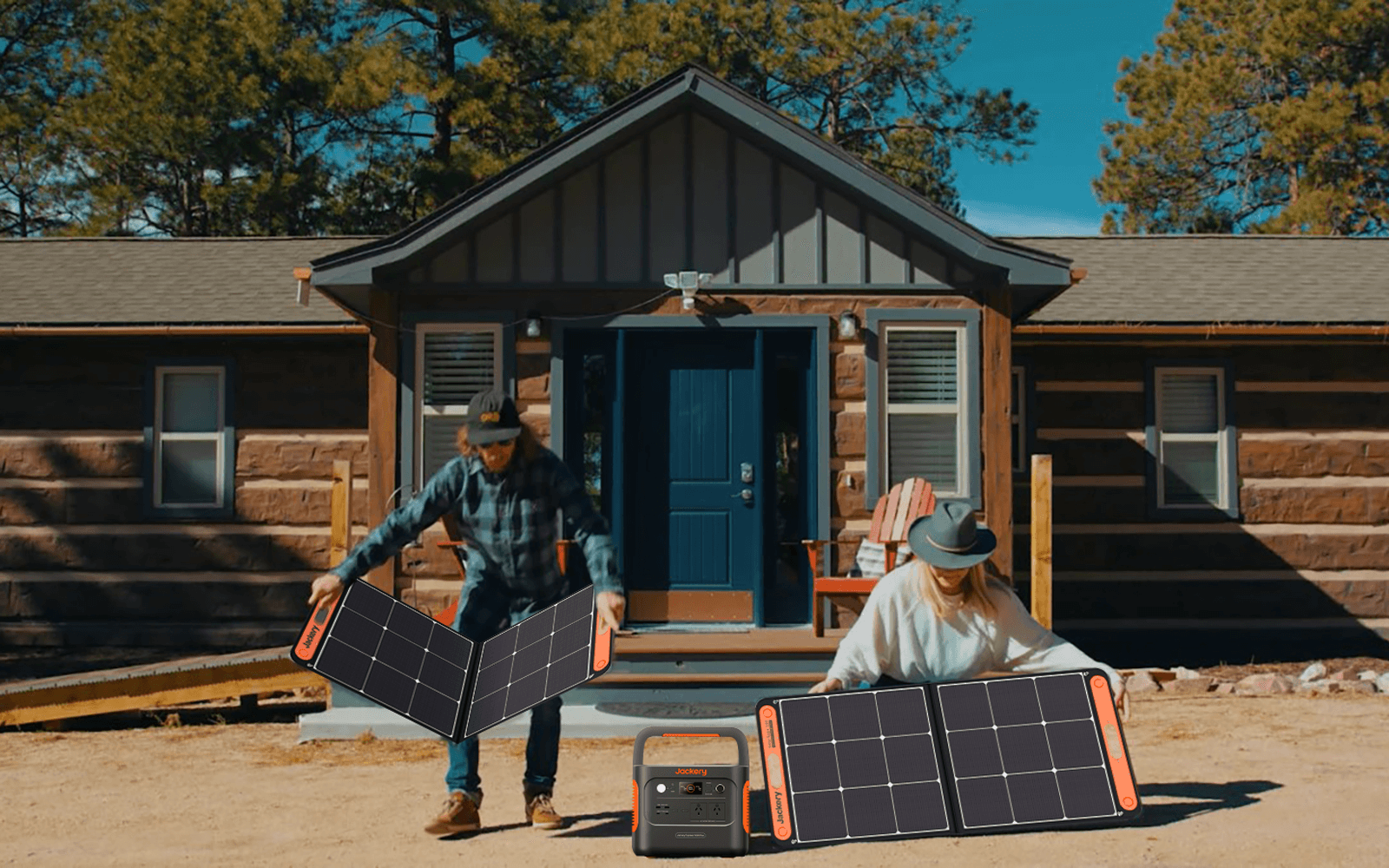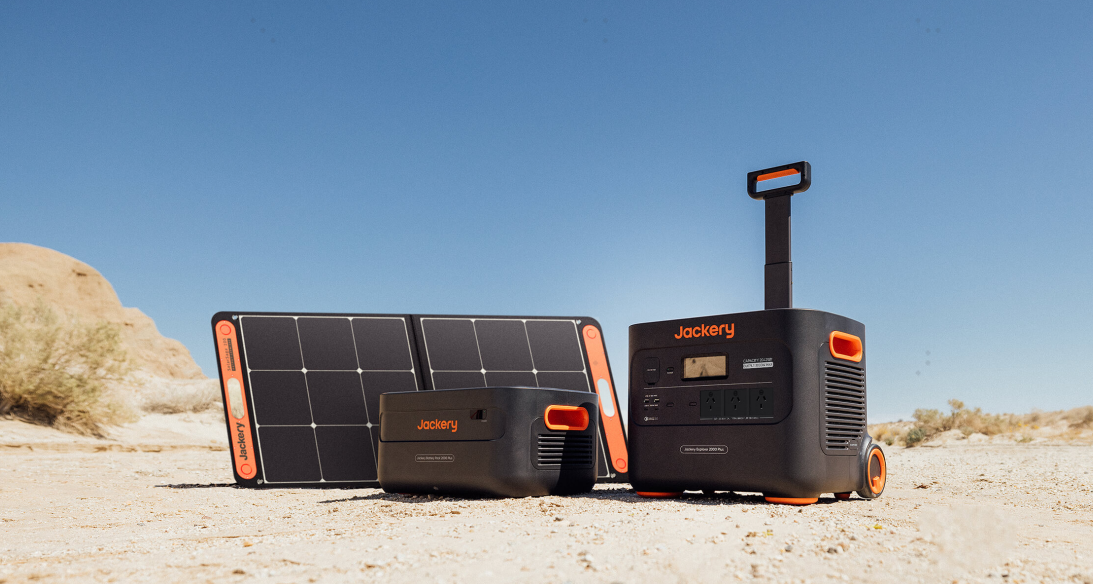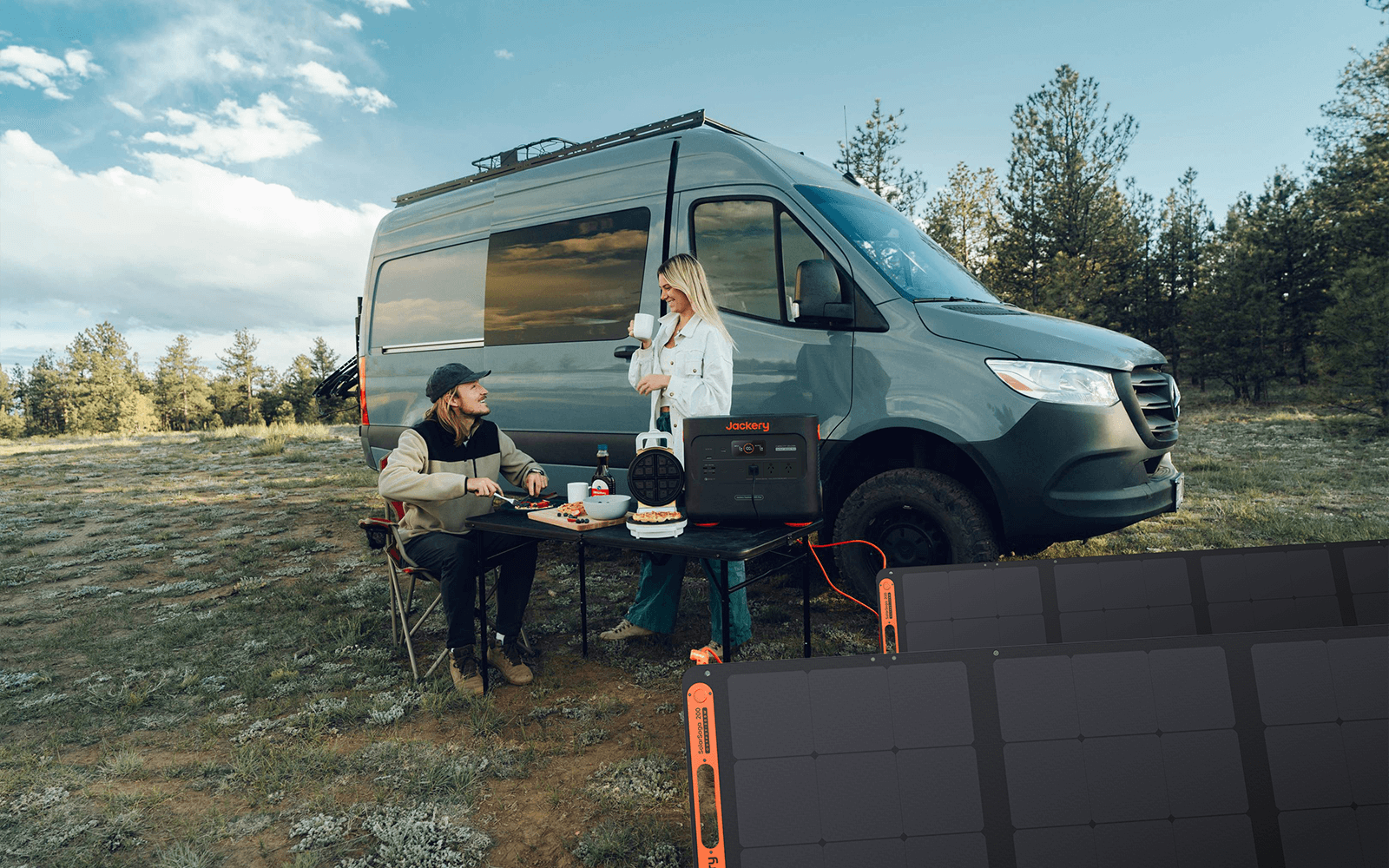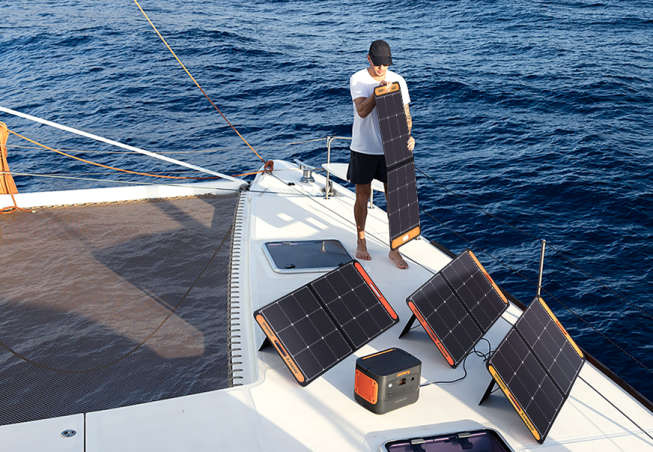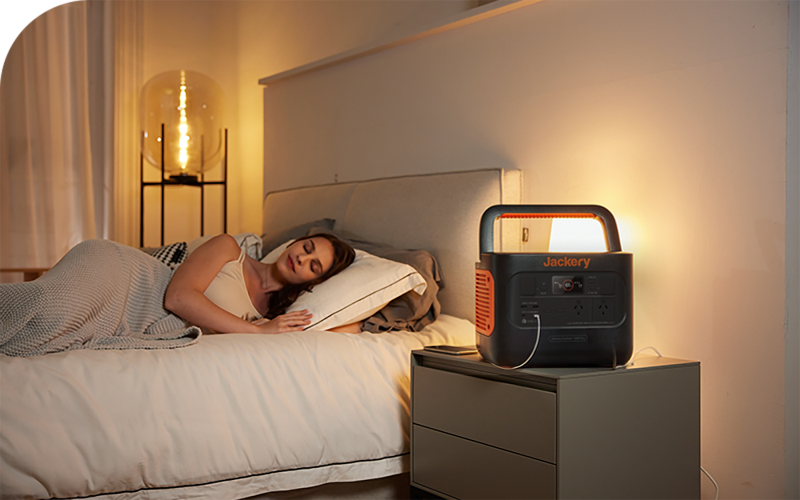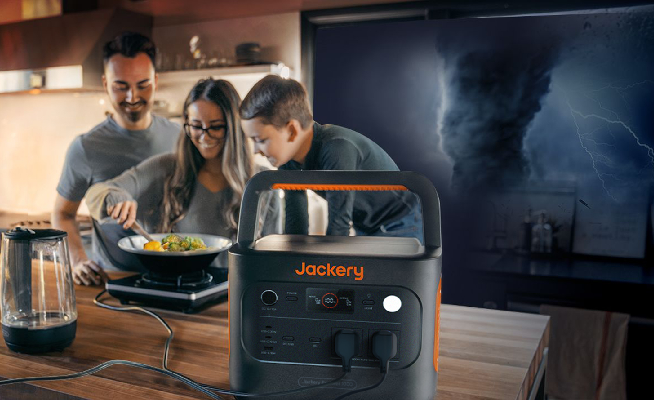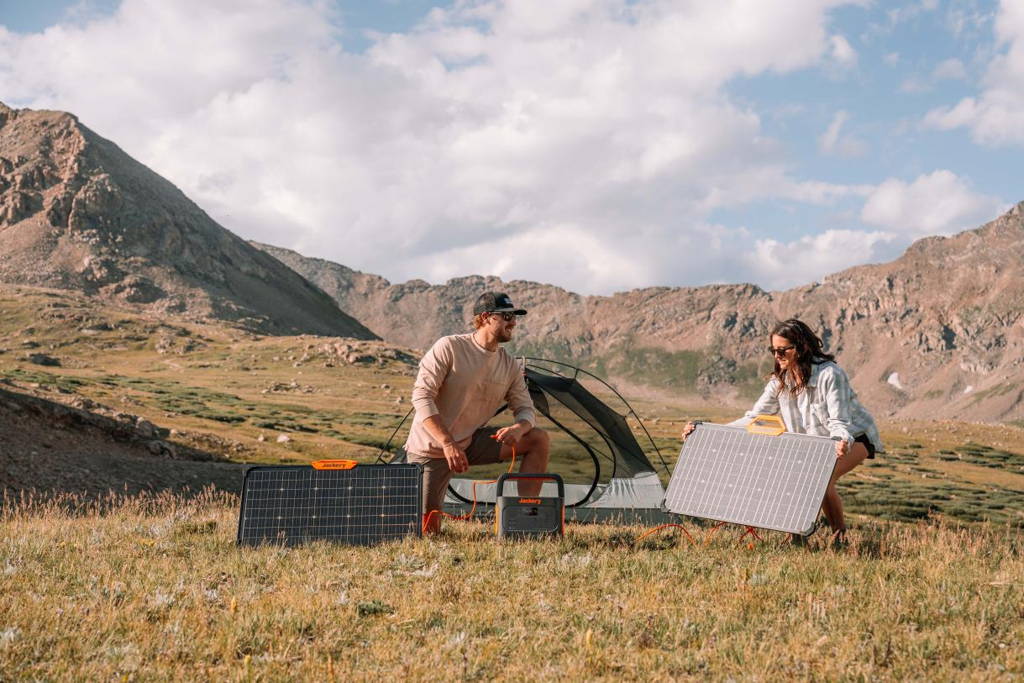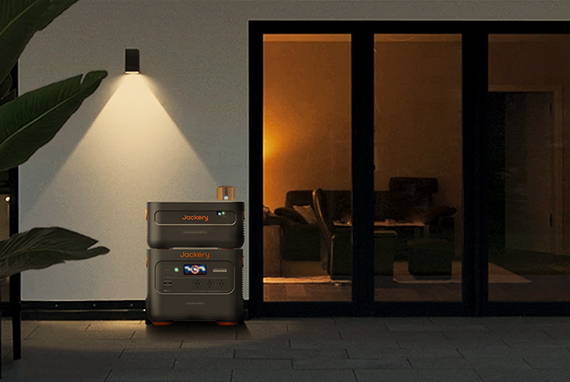How Portable Power Stations Are Empowering Australians to Off Grid Living
Off grid living is a self-sufficient lifestyle disconnected from the main national electrical grid and other utilities. It requires the integration of various alternative energy sources, including but not restricted to portable solar panels and generators. The efficient management of power is necessary because off grid living relies on energy storage and consumption balance. Battery banks and charge controllers are essential to ensure a steady energy supply.
According to the Clean Energy Council's report, renewable energy accounted for 35.9% of Australia's total electricity generation in 2022. It illustrates the growing trend towards sustainable and independent energy solutions in the region. Considering that, the best off grid power stations have become integral to off grid living. These devices are compact, mobile, and capable of providing electricity derived from solar or other renewable sources.
Off grid solar power stations offer flexibility. They can be transported and positioned to capture optimal energy conditions. Moreover, they come with many charging options, like USB, AC outlets, and more, for various energy needs, from charging smartphones to powering essential household appliances. The integration of portable power stations in Australia thus represents a pragmatic approach to ensuring a resilient and adaptable off grid living environment.

An Overview of Various Off Grid Lifestyles
The following is an indication of different off grid living lifestyles.
Homesteading
Homesteading alludes to a lifestyle emphasizing self-sufficiency and often involves living off the grid. It can include growing your food, raising livestock, generating electricity through renewable sources like the best off grid solar power station, and using rainwater collection systems. Homesteaders use traditional agricultural techniques and emphasize sustainability and independence from conventional supply chains. Challenges include waste management, legal zoning restrictions, meaningful skills, and labour investment. Yet, the rewards can embrace a more sustainable and connected way of life aligned with nature's rhythms.
Remote Cabins
A remote cabin can provide a solitary, peaceful, off-grid lifestyle. It remains in wilderness areas, far from traditional utilities and infrastructure. Energy can be supplied through the best battery for off grid living, and wood-burning stoves provide heating. Likewise, water may be sourced from nearby springs or wells. The lifestyle requires careful planning about access to medical care, emergency services, and food supplies. It appeals to those seeking to escape the bustle of urban life and who appreciate solitude and connection with the natural environment.
Mobile Living (Van Life, RV Living)
Mobile living, often in vans or recreational vehicles (RVs), allows individuals to adopt a nomadic lifestyle while maintaining some home comforts. These categories of mobile homes can be outfitted with solar portable power stations, batteries, propane stoves, and water tanks to enable off grid living. The lifestyle promotes flexibility and the freedom to travel. But it requires careful planning on legal parking, access to water and dumping facilities, and maintaining power supplies. Note that mobile living attracts people seeking a minimalist lifestyle or those who wish to explore many regions without the constraints of traditional housing.
Sustainable Eco-Communities
Eco-communities are groups of individuals or families living together with a common goal of minimizing their environmental impact. They use a mix of renewable energy sources to live off the grid. Also, they focus on permaculture principles, waste reduction, shared resources, and communal living. Challenges can include interpersonal conflicts, legal and zoning issues, and the complexity of managing a communal system. But for many individuals, the rewards of shared values, reduced environmental footprint, and close-knit community are compelling.
Boat Living
Living on a boat provides a unique off-grid lifestyle where mobility meets minimalism. Whether anchored in one location or travelling between ports, those living on boats rely on renewable energy. Desalination systems or water collection strategies are used for freshwater, and waste management must be considered. Boat living requires knowledge of navigation, maintenance, and weather prediction. It appeals to those seeking freedom and adventure on the water. Still, the financial costs and potential isolation may be challenges to consider.
Challenges Off-Grid Australians Face
Let's now explore the challenges off grid living Australians face about generation and usage.
Limited Energy Sources: Off-grid locations lack connection to the national grid and rely on localized energy production, which can be inconsistent. Hybrid systems using diesel generators can help, but fuel transportation and cost become major challenges.
Energy Storage Constraints: Storing energy for use during non-generating times requires batteries, which can be expensive and have limited lifespans. The capacity of existing storage technologies might not meet the power demands during extended periods.
Infrastructure Development: Building and maintaining the best off-grid power stations need investment in remote areas, where logistics can be tricky. The lack of local technical expertise may lead to installation, maintenance, and troubleshooting difficulties.
Environmental Impact: Depending on diesel generators in hybrid systems may cause higher greenhouse gas emissions than grid electricity. Proper disposal of batteries, and potential land use for renewable installations, can also add environmental challenges.
Regulatory Hurdles: Off-grid solar power stations must adhere to various regulatory standards and get necessary permissions, which can be complex. Compliance with safety and reliability standards may need costly equipment and practices.
Load Management and Efficiency: Off-grid systems often need sophisticated load management to ensure efficient energy usage, which can be complex. Energy-intensive appliances may not be workable and limit the possibilities for economic activities.
Climate and Geographical Challenges: The efficiency of renewable sources like solar may vary depending on the local climate and geographical conditions. Additionally, extreme weather conditions may cause damage to the systems, and remote locations might make repair and maintenance difficult and expensive.
Along similar lines, Jackery Explorer 2000 Pro Portable Power Station is a versatile and compact 2160Wh lithium portable power station. At $2969.00, it features manifold charging options, including solar recharging. It is intended for outdoor use in Australia, like RV camping, fishing, and emergency backup. The product embodies Jackery's commitment to delivering portable and innovative power solutions for abundant applications.
What Is A Portable Power Station?
A portable power station is a multipurpose energy device that offers electrical power by converting stored energy in batteries, often lithium-ion, to AC or DC voltage. The stations contain complex electronic systems to manage power output, incorporating an inverter to transform DC power into AC power, and often include USB ports, AC outlets, and other connectors. Unlike traditional gasoline generators, portable power stations are usually noiseless and emission-free for indoor and outdoor use. They emphasize portability, compactness, and lightweight construction to be carried to various locations for a continuous power source wherever needed.
The internal mechanism involves a system of energy management where power from solar panels charges the best battery for off grid living. Various protection circuits are implemented to prevent overcharging, over-discharging, overheating, and short-circuiting for safe and efficient operation. Besides, portable power stations often have features like an MPPT controller to enhance solar charging efficiency. The sophisticated design and multipurpose functionality make portable power stations vital for emergencies, outdoor recreation, or any situation where traditional power sources are unavailable.

Benefits of A Portable Power Station for off grid living
Now comes the time to dig into the benefits of a portable power station for off-grid living.
Versatility and Flexibility in Power Generation
The best off grid power station is a versatile and flexible solution for power generation, especially in off grid living situations. Unlike conventional power sources, they can generate power anywhere in sunlight for remote locations in Australia, like the vast Outback region. By utilizing solar panels, which can often be adjusted to maximize exposure to the sun, they provide the ability to harvest energy even during periods of variable sunlight. For instance, travellers in rural Australia, including Kimberley in Western Australia, can generate power throughout the day to ensure access to electricity despite being far from conventional power grids.
Clean and Sustainable Energy
Solar portable power stations capitalize on this natural resource to provide clean and renewable energy in a continent renowned for its abundant sunshine, such as Australia. Unlike fossil fuels, solar power doesn't produce harmful emissions or contribute to greenhouse gas effects. Australia's initiatives to reduce carbon footprints can be complemented using solar portable power stations in remote areas or urban settings during outdoor activities. For example, during the summer months in places like Queensland, solar energy can be harnessed to promote a cleaner, more sustainable energy source that aligns with global environmental goals.
Portability and Ease-of-Use
The compact and lightweight design of solar portable power stations is ideal for off grid living in Australia's vast and diverse landscapes. Whether camping in the Blue Mountains of New South Wales or exploring the remote areas of the Northern Territory, their portability ensures power is willingly available. The ease of use further adds to their appeal, with many models aimed to be comprehensible, which requires minimal setup or technical know-how. It can be a boon for eco-tourism operators in places like Tasmania, where access to traditional power might be limited.
Capable of Powering various Devices and Appliances
Solar portable power stations can handle various electrical loads and power multiple devices and appliances in chorus. It is suitable for recreational and emergency purposes across Australia. Whether powering a refrigerator in a mobile home in South Australia's desert regions or charging communication devices during a hiking expedition in Victoria's alpine areas, they can adapt to various energy demands. Some advanced models in the Australian market even offer intelligent power management systems and optimize energy distribution among different devices.
Jackery Portable Power Stations
Based on the discussion above, we would like to introduce two Jackery portable power stations.
Jackery Explorer 2000 Pro Portable Power Station
Jackery Explorer 2000 Pro Portable Power Station is a 2160Wh lithium power station for versatility in outdoor activities and emergencies. Its large capacity and various outlets support numerous low to high-power appliances. These include mini-fridges, air pumps, and TVs. Recharging is made easy through solar panels or wall, car, and generator outlets, which provides off-grid capabilities and ecological solar recharging. The compact and portable solar generator is perfect for RV camping, road trips, and as an emergency backup.
Jackery Explorer 1000 Pro Portable Power Station
On the other hand, Jackery Explorer 1000 Pro Portable Power Station is an excellent solution for off grid living applications. Its large 1002Wh capacity can reliably power essential appliances and devices when living off the electrical grid. For off-grid lighting needs, Jackery Explorer 1000 Pro Portable Power Station can efficiently run LED lights, lanterns, and lamps to illuminate your off-grid home at night. For kitchen needs, you can use it to power a refrigerator, cooker, blender and other appliances to cook meals. It can also power communication devices like routers and modems for internet access as well as laptops and smartphones to stay connected. Plus, the pure sine wave inverter ensures all-around safety and stability. It's an outstanding companion for off grid living and power outages in regions like Australia.
Other Applications for Portable Power Stations in Australia
Besides off grid living, let's discuss other applications for portable power stations in Australia.
Outdoor Adventures: Portable power stations provide a renewable energy source for charging devices, powering lights, or cooking equipment during hiking or biking excursions. They are compact and offer a quiet way to keep gadgets powered.
Camping: Ultimate for powering various camping appliances, off grid solar power stations can charge everything from smartphones to portable refrigerators. They provide a clean energy alternative with no fuel conditions and no emissions.
Emergency Backup Power during Power Outages: The best battery for off grid living can provide essential power to critical devices like medical equipment, lights, or communication tools in a grid failure. They act as a reliable and accessible energy reserve to reduce the impact of power disruptions in areas prone to natural disasters.
Powering Remote Work Sites: For construction sites, mining operations, or research locations, they offer a practicable solution to power tools and essential machinery in areas without access to the electricity grid. They reduce dependency on traditional generators.
Temporary Installations for Events: Solar portable power stations can power temporary structures or setups like outdoor festivals, exhibitions, or markets while avoiding noisy and pollutant generators. They offer an eco-conscious energy solution that is reliable and flexible, fitting various temporary energy needs and aligning with green initiatives.

In Australia, off grid living demands a stable, efficient power source that sustains essential electrical needs in remote and variable conditions. As we have seen, Jackery's portable power stations empower Aussies to live self-sufficiently off the grid. With abundant energy capacity, solar charging capabilities, ultra-portability, and rugged dependability, these power stations are purpose-built for flourishing in off-grid settings. By embracing Jackery's best off grid power stations, you can pursue your off-grid dreams and still enjoy modern conveniences. Lead a tech-assisted, eco-friendly life beyond boundaries with Jackery power stations at your side.

